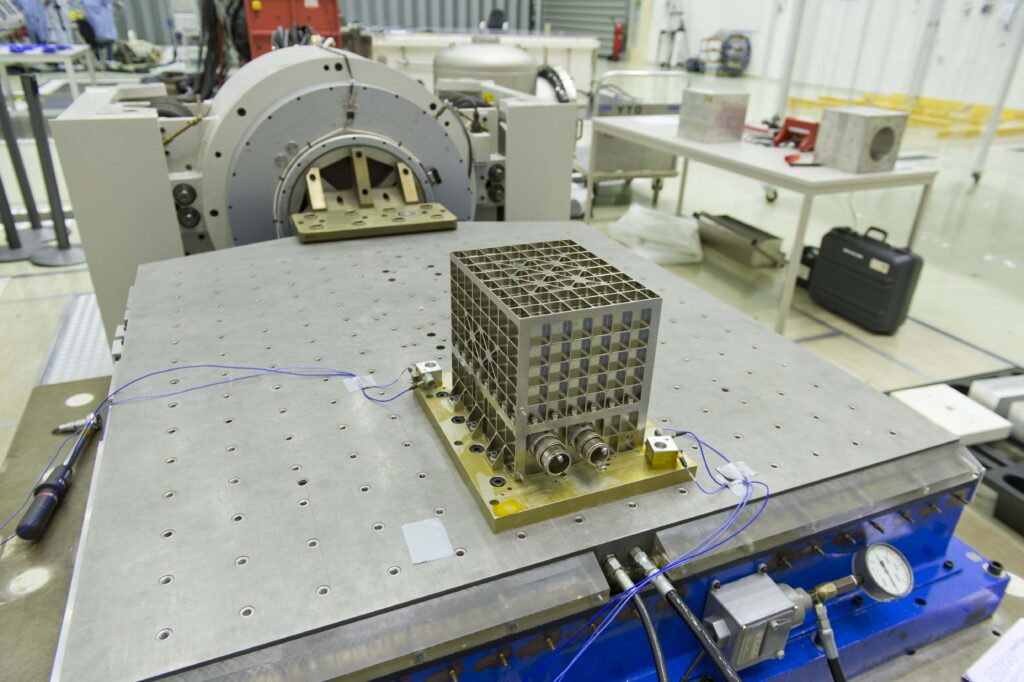Vibration testing is an important aspect of assessing the durability and reliability of solar panels. This type of testing is conducted to simulate the effects of vibrations that solar panels may experience during transportation, installation, and operation.
- Transportation and Handling:
- Solar panels are often transported over long distances from the manufacturing facility to the installation site. During transportation, panels may be subjected to vibrations from road or rail conditions. Vibration testing helps ensure that the panels can withstand these mechanical stresses without sustaining damage.
- Installation:
- The installation process involves handling and mounting the solar panels on various structures, such as rooftops or ground-mounted systems. Vibrations can occur during the installation process, especially when securing the panels to mounting structures. Testing ensures that the panels remain structurally sound and do not develop issues like microcracks or delamination.
- Operational Conditions:
- Solar panels are exposed to various environmental conditions, including wind-induced vibrations. Vibration testing helps assess how well the panels can endure these vibrations over their operational life. Panels need to maintain their structural integrity to continue producing electricity efficiently.
- Resonance and Fatigue Testing:
- Vibrations can lead to resonant frequencies in the materials of solar panels. Resonance can cause excessive stress, leading to fatigue and potential failure over time. Vibration testing helps identify these resonant frequencies and assess the fatigue resistance of materials.
- Quality Assurance:
- Vibration testing is part of the overall quality assurance process for solar panels. It helps identify weaknesses or defects in the panel construction that may not be evident during visual inspections. Ensuring that panels can withstand vibrations is crucial for their long-term reliability.
- Compliance with Standards:
- Many industry standards and certifications require solar panels to undergo specific mechanical testing, including vibration testing. Compliance with these standards is often necessary for commercialization and to meet regulatory requirements in different regions.
- Endurance Testing:
- Vibration testing is a form of endurance testing that simulates the cumulative effects of mechanical stress over time. Panels are subjected to vibrations for extended periods to assess their ability to maintain performance and structural integrity over the expected lifespan.
- Product Liability Mitigation:
- For manufacturers, conducting vibration testing helps mitigate potential product liability issues. By identifying and addressing structural weaknesses early in the development process, manufacturers can reduce the risk of field failures and associated warranty claims.
In summary, vibration testing is a critical step in the overall testing and validation process for solar panels. It helps ensure that panels can withstand the mechanical stresses they may encounter throughout their life cycle, contributing to their reliability and longevity in the field.


